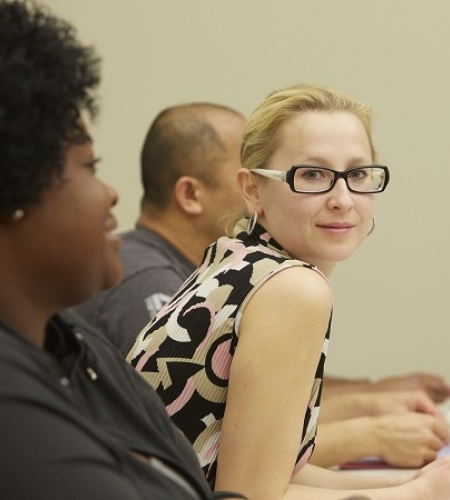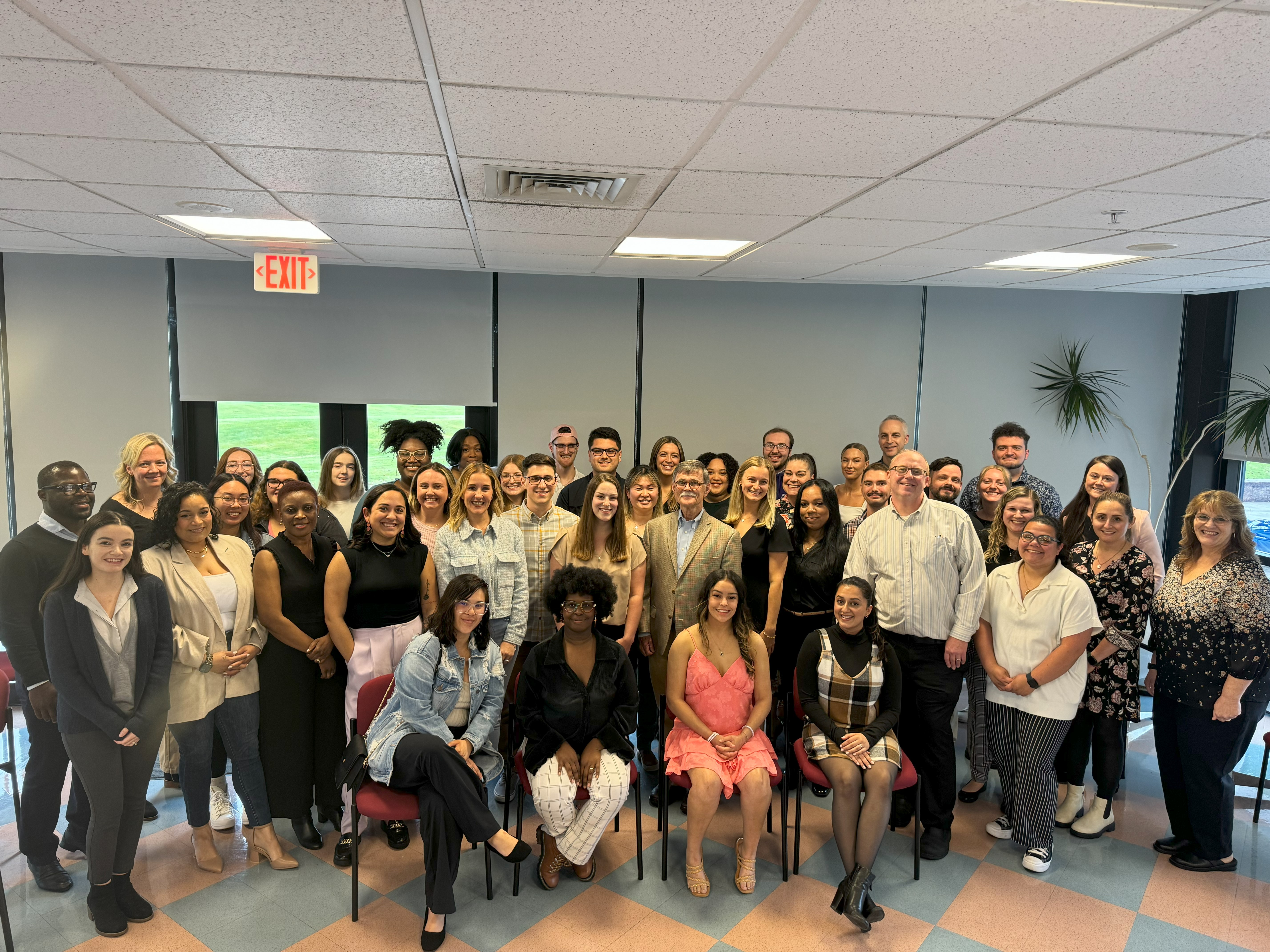
Counseling Psychology, M.S.
The Master of Science in Counseling Psychology program prepares students to become professional community mental health counselors in a variety of settings including human service agencies, schools, and hospitals.
Program Overview
Consistent with Holy Family’s tradition of teneor votis (I am bound by my responsibilities) counseling psychology students are inspired to advocate for social justice, shape public policy, and witness the dignity of each person and the human family. In this spirit, the mission of the Master of Science in Counseling Psychology is to graduate well-rounded scholar-practitioners who can integrate theory, research, and practice.
In fulfillment of this mission, the program promotes:
- Ethical behavior
- Professional competence
- Respect for diversity and human dignity
- Service to the community
- Evidence-based practices
Program Details
This program prepares students to become competent scholar-practitioners who are eligible for state licensure and/or certification in their particular specialty area. Graduates of the Master of Science in Counseling Psychology program, regardless of concentration area, demonstrate skills and knowledge in the following areas:
- Professionalism and ethical practice according to the American Counseling Association Code of Ethics and federal and state laws governing counseling practice
- Bio-psychosocial models of human growth and development
- Theoretical approaches to counseling and case conceptualization
- Integrative approach to wellness and prevention
- Helping relationships and counseling skills
- Group counseling, process, and dynamics
- Psycho-education
- Career and vocational development
- Multicultural, social justice, and advocacy in counseling and the profession
- Appraisal and assessment
- Research and program evaluation methods
- Psychopathology and diagnostic systems
Career Paths
Counseling Psychology Concentrations
Both concentrations in the Masters of Counseling Psychology program have been designed to meet the educational requirements for students to become Licensed Professional Counselors (LPC) in the state of Pennsylvania. Below is an overview of the two areas of concentration in the Masters of Counseling Psychology Program:
Clinical Mental Health Counseling
The Clinical Mental Health Counseling concentration prepares master-level counselors to work with adolescents and adults in a community setting. This concentration is designed for students wishing to develop expertise in counseling adolescents and adults. Students also will gain the credentials to assume a supervisory position in community agency settings. Graduates of the clinical mental health counseling concentration meet the educational requirements to become LPCs.
School Counseling
The school counseling concentration prepares master-level counselors to work as a school counselor in Pre K-12 settings. This Pennsylvania Department of Education-approved school counseling certification program allows students to pursue certification and licensure as a LPC.
Postgraduate Programs
The counseling psychology program offers post-graduate programs for both of its concentrations for those interested in obtaining their LPC or other concentration specific credentials. Each post-graduate plan of study is developed on a case-by-case basis. Post-grad plans are recommended by a counseling psychology advisor, but must ultimately be approved by the respective licensing or credentialing board.
Counseling Psychology FAQs
Students can choose from Clinical Mental Health Counseling, School Counseling, Correctional Counseling, and Art Therapy. Each option is designed to prepare graduates for specific licensure or certification pathways in Pennsylvania.
The program typically takes two to three years to complete depending on whether you attend full-time or part-time. It includes both coursework and field experiences such as practicum and internship hours.
Yes. The School Counseling concentration meets the requirements for certification as a Pre K through 12 school counselor in Pennsylvania. Graduates are eligible for state certification upon completion.
Students will develop expertise in counseling theory, ethical practice, cultural competence, assessment, diagnosis, and treatment planning. The program emphasizes real-world application through clinical placements and supervised experience.

Students Team with Renowned Beck Institute
Questions? Contact the Graduate and Adult Admissions Office
The Graduate and Adult Admissions Office
Related Programs
Psychology, B.A. UG
The Psychology major examines the scientific study of the brain and behavior. Students have the opportunity to take coursework in many subfields of psychology including biological, clinical, cognitive, developmental, and social psychology.
Counseling Psychology, Clinical Mental Health Counseling, M.S. G
The Clinical Mental Health concentration in the M.S. in Counseling Psychology program supports the idea that counseling is a way of living that is committed to social justice, empathy, and life-long learning as well as evidenced-based treatment.
